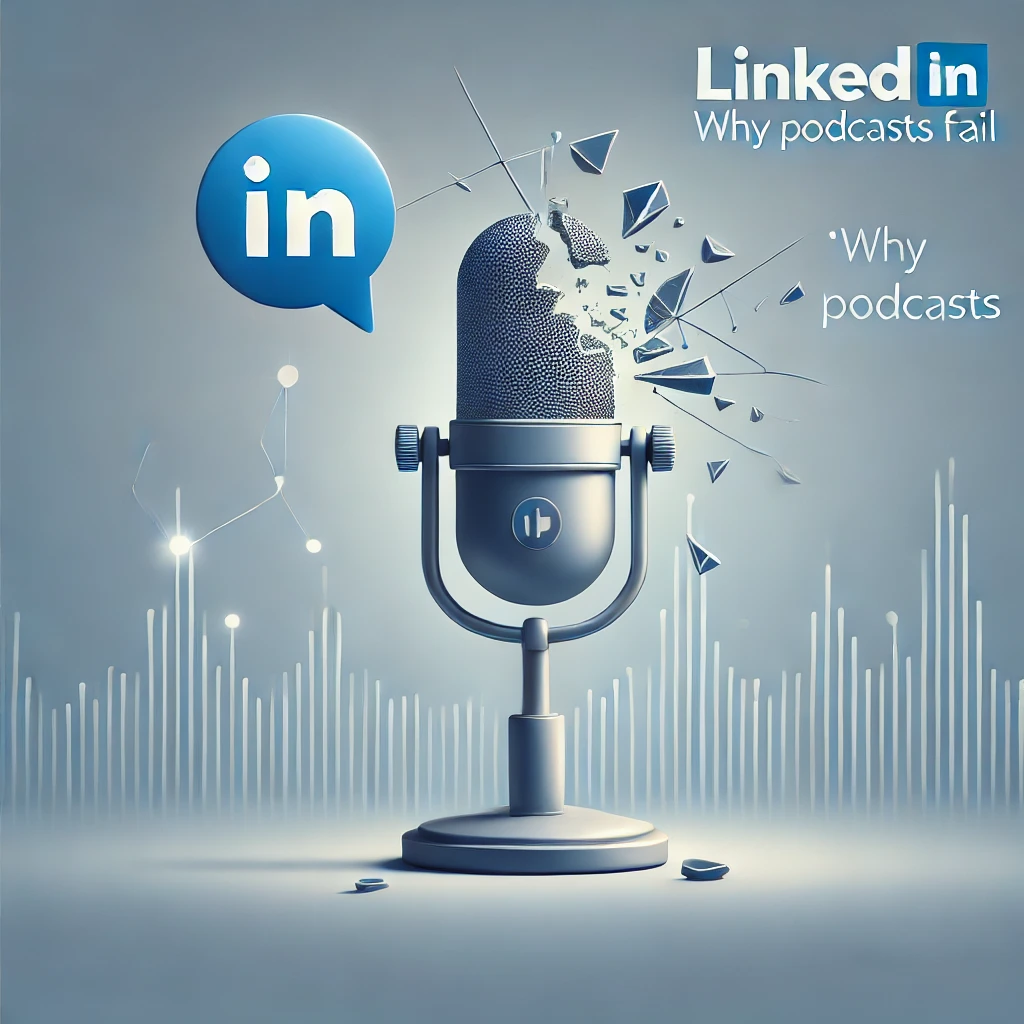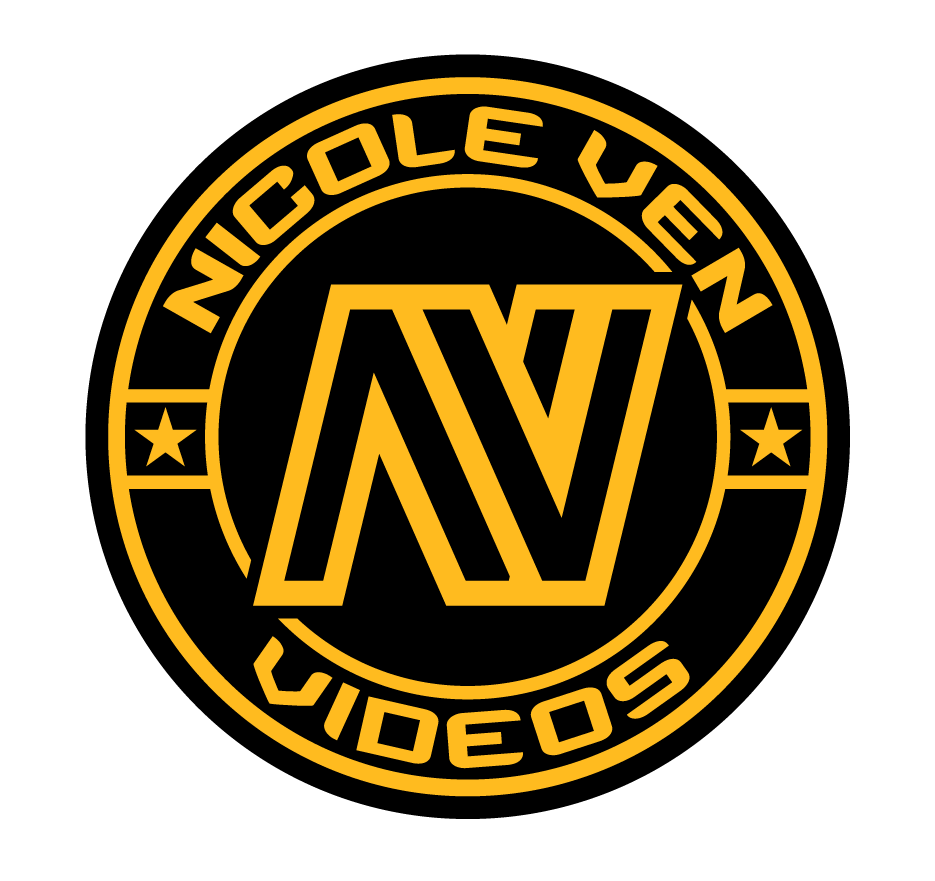A lot of my clients come to me asking about every technical detail before they’ve even recorded their first podcast episode. It’s great to be prepared and avoid mistakes, but there’s a process. You don’t want to overwhelm yourself before you even start. Too often, podcasts fail because people forget the bottom line of every creative industry: content. Podcast content is the most important thing.
It’s not about having the best titles, descriptions, or SEO. It’s about the content itself. I’ve seen videos go viral without descriptions or hashtags, and podcasts thrive without using all the latest tools. When you’re building a core audience, simplicity is key. If you launch with 25 listeners, your entire focus should be on creating valuable content and doing basic promotion (for example telling people face to face you have a podcast).
Why Content is More Important Than the Details
Sure, good titles, descriptions, and SEO help a lot, but they won’t save bad content. First, you need to objectively assess whether your podcast is good and figure out what to improve.
There’s no one-size-fits-all approach in creative industries. You can’t follow a formula and expect to become the biggest podcaster or have your podcast blow up. It’s the same with fitness—two people can follow the same routine, and one loses 5 kilos while the other gains 2. Every situation is unique.
Take Joe Rogan, for example. In the early days of his podcast, his audio quality was all over the place, his video setup was basic, and his episode titles were far from optimized. But the content was compelling. People tuned in to hear what he and his guests had to say, not because of flashy production or perfect SEO. He built an empire by delivering value through his conversations.

The Core of a Successful Podcast
At the heart of a successful podcast, there are three essential elements:
– A short, catchy title
– High-quality audio
– An interesting, engaging topic
Secondary factors to consider include:
– Natural, unscripted conversations (or a solo episode that feels natural, even if scripted)
– Catchy, eye-catching cover art
– SEO-friendly titles
– Keywords in the description
– A video version
What Happens When You Ignore the Core Elements
If you focus on the secondary elements but miss the primary ones, your podcast will fail. For instance, having top-notch audio quality won’t matter if your topic is boring. You can optimize everything—titles, descriptions, cover art, even create a video version—but if your content isn’t engaging, your podcast won’t succeed.
Take Gary Vaynerchuk’s early podcast episodes. He recorded them in noisy environments, without worrying much about production quality, but the content was solid. He shared real, raw insights that people wanted to hear. Even with the poor audio, his podcast gained a massive following because listeners valued what he had to say.
Great Content Can Even Overcome Bad Audio
Here’s a personal example that drives home the importance of content. I once listened to an interview with a business owner who doesn’t typically give interviews. The audio quality was terrible—so bad that I had to listen to it twice to make out what he was saying. Under normal circumstances, I would have switched it off immediately, but the content was so valuable that I put up with the poor quality. It gave me insights I couldn’t get anywhere else, and that’s why I kept listening.
Another example is Tim Ferriss’ 4-Hour Workweek podcast. In the early days, his sound quality wasn’t the best, and his descriptions were short, often lacking SEO. But the content was packed with value—actionable insights from top performers—and that’s what drew listeners in and made it one of the most popular podcasts today.
That’s not to say you should ignore audio quality—far from it. But if your content is strong, your audience will forgive a lot. This proves the point that great content can still shine through technical issues, though I wouldn’t recommend relying on this all the time. These days it is very accessible and affordable to buy a good microphone and provide great audio and you should deliver it.
You can check out my Useful links list with good and affordable equipment.

The Myth of the “Perfect Formula”
I have a small, humble YouTube channel, which is more of a side hobby for me. (Check it out for hundreds of free advice and tutorials!)
Many successful YouTubers with 100k+ subscribers have commented on my videos, saying things like, “This will blow up, just change the thumbnail or the title.” I’ve taken their advice, done exactly what they suggested, and… nothing. What works for them doesn’t necessarily work for me. That’s the creative industry for you—it’s personal, it’s unique.
Some people might hate your speaking style, while others will love it. Take one of the most successful streamers, xQc. I can barely understand a word he says, yet people love listening to him. If he had listened to the advice to speak more clearly, he might not be where he is today.
Don’t Overthink It—Take Action
If you’re feeling overwhelmed by the process of starting a podcast, check out my Podcasting 101 online course. It’s made for complete beginners and walks you through the basics with practical tips, plus 30 days of email support for any specific questions you have.
Also, don’t forget to check out my own podcast Girl with a camera where I published over 120 episodes.
When clients come to me for consulting, they often don’t even have a clear idea of what their podcast will be about, yet they’re already asking how to promote it and make money from it. This approach is all wrong. Money shouldn’t be your primary focus in any creative industry. It can be a goal, sure, but if it’s your main motivation, it’ll cloud your judgment. Focus on creating something great first, and the money will come later.
The Bottom Line
“How do you promote a podcast you haven’t even recorded yet?” That’s what I ask my clients. Get the podcast figured out first—record, edit, see what it actually is and how it turned out and then think about marketing. Don’t overwhelm yourself from the get-go. Take it step by step, and always focus on the content.
I have a podcast that no one knows is mine. I haven’t told anyone, I haven’t shared it anywhere, and I haven’t put much thought into its descriptions or titles. Yet, it’s doing surprisingly well. The topic is sensitive but resonates with many people, so they naturally search for it. Now that I’ve built an audience, I can focus on optimizing everything and promoting it. But that comes later—not when you’re just starting out with 25 listeners.
Final Thought: Take it step by step and prioritize your content above all else, because podcast content is the most important.
Take advantage of my discounts for podcasting tools 15% off!
RiversideFM click this link to sign up and use the code NICOLE15
Podsqueeze, click this link and use the code NICOLE
And don’t forget to get my Podcasting 101 online course!


Comments are closed